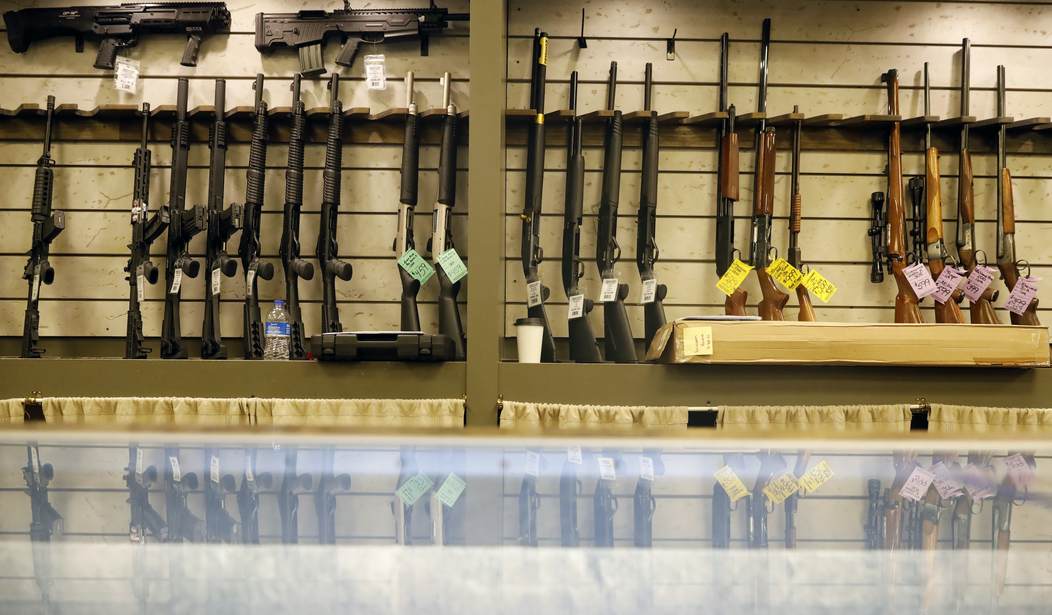The Texas Supreme Court is on a roll. Yesterday I wrote about a groundbreaking decision made by the court that Facebook can be held liable for sex traffickers who use the social media platform to recruit and prey on children. Today there is a “landmark” decision to be heralded from the court. A retail sports chain cannot be held responsible for selling a gun used in a massing shooting.
The mass shooting at the First Baptist Church of Sutherland Springs in 2017 resulted in the deaths of 25 innocent churchgoers and 20 injured. A madman entered the church during Sunday morning services and opened fire. Those murdered included a pregnant woman. He turned the gun on himself after that, dying of a self-inflicted gunshot. This horrific event is Texas’ deadliest ever mass shooting. The attention turned to the mass shooter, a 26-year-old former airman, and how he came to have possession of his weapon, a Model 8500 Ruger AR-556, fitted with a 30-round magazine. The former airman had a troubled military record – he served a year in confinement after an assault conviction in 2012 and was released from the USAF in 2014 with a bad conduct discharge. He lived in Comal County, outside of San Antonio. Apparently, this developed from a domestic dispute and his mother-in-law was a member of the church.
With that record, the shooter should not have been in possession of a gun, right? Survivors and families of victims filed four lawsuits against Academy Sports + Outdoors, the retailer who sold the gun to the shooter. The lawsuits accused Academy Sports of negligence for making the sale in the first place. On Friday, the Texas Supreme Court issued a unanimous decision – Academy Sports can not be held responsible for the actions of the gun owner. It tossed all four lawsuits.
As it turns out, Academy Sports did all it could to make a responsible sale. It followed the law and performed a background check. The shooter, however, wasn’t properly flagged as a risk. The Air Force dropped the ball. The Air Force didn’t enter his domestic violence conviction against his wife and infant son into a government database. This would have prevented him from passing a background check to purchase the gun.
When the lawsuits were filed, Academy Sports claimed it was shielded by the federal Protection of Lawful Commerce in Arms Act. This law protects firearms dealers and manufacturers from lawsuits when the gun owner legally purchases a weapon and then uses it in a crime. The retail store asked State District Judge Karen H. Pozza, a Democrat, to throw out the lawsuits but she ruled against Academy Sports.
The unanimous ruling by the Texas Supreme Court was signed by Justice Debra Lehrmann. How could Academy Sports disqualify the shooter from purchasing a gun if the information against him wasn’t available?
In its ruling signed by Justice Debra Lehrmann, the high court granted the retailer a rare writ of mandamus and directed the trial court to grant the company’s summary judgment motion.
“Although federal law disqualified Kelley from purchasing a firearm at the time of the sale — based in part on his conviction in a 2012 court-martial for assaulting his wife and stepson and his dishonorable discharge from the United States Air Force — that disqualifying information was not in the system, which authorized Academy to ‘Proceed’ with the sale,” the court found.
Attorneys for Academy Sports called the decision a “landmark” decision. “Our thoughts and prayers continue for the victims of this tragedy,” the lawyers said. “We feel the entire Supreme Court opinion applied the law carefully and thoughtfully in this situation.”
Federal litigation over the Air Force’s handling of the incident is still before the courts.
Senator John Cornyn led the effort after the shooting in Sutherland Springs for the Fix NICS Act to ensure federal and state authorities comply with existing law and accurately report relevant criminal history records to the National Instant Criminal Background Check System (NICS). The bill penalizes federal agencies who fail to properly report relevant records and incentivizes states to improve their overall reporting. The bill also directs more federal funding to the accurate reporting of domestic violence records.








Join the conversation as a VIP Member